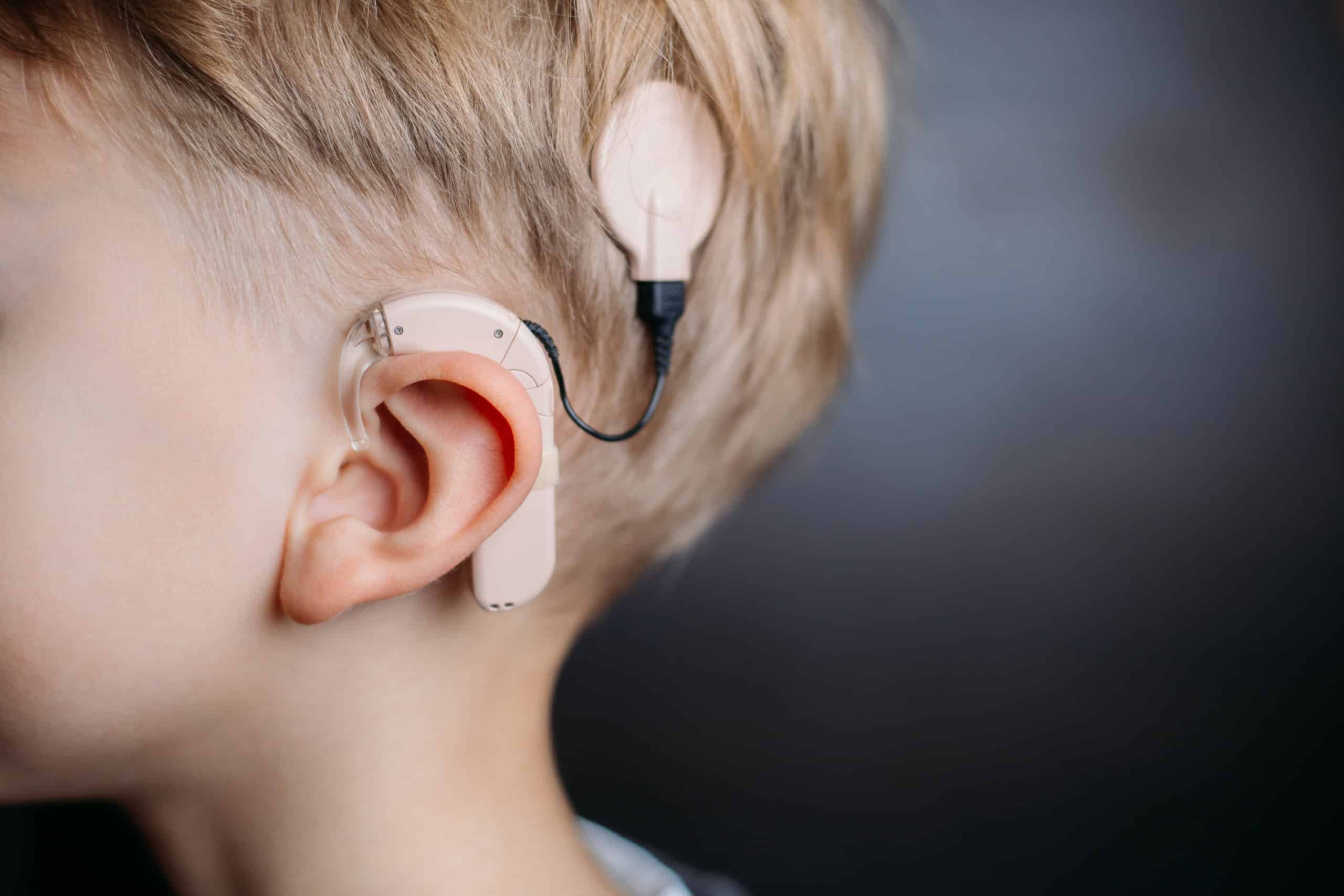Benefits of Cochlear Implants

Cochlear implants have come a long way since their introduction for helping people who are hard of hearing make sense of their auditory environment. This procedure provides a way for electric signals to directly stimulate the hearing nerve, helping the user understand speech and conversation. Although cochlear implants may not completely replicate normal hearing, they can have a profound impact on communication ability and quality of life, particularly when hearing aids are no longer providing benefits. The primary goal of cochlear implantation is improved speech recognition and communication.
Who is a Candidate for Cochlear Implants?
Both children and adults can undergo cochlear implantation if they are suitable candidates for the procedure. Our team at the Hearing Institute offers both traditional cochlear implantation as well as a “hybrid” cochlear implantation, where users are also fitted with a hearing aid for specific frequencies of sounds.
Candidates for cochlear implants should have the following characteristics:
- Have moderate-severe degrees sensorineural hearing loss in both ears or severe hearing loss in one ear
- Receive limited benefits from traditional hearing aids
- For children: Display poor progress in developing auditory skills
- Are medically healthy enough to undergo a surgical procedure
- Have a desire and motivation to follow through on auditory rehabilitation after surgery
The last point is especially important, as a cochlear implant doesn’t immediately recreate sounds the way hearing people perceive them. Instead, it transmits electrical signals directly to the hearing nerve. The brain takes take to learn to interpret this signal, and it can take weeks to months of wearing the device and working with an audiologist before speech recognition significantly improves.
Benefits of Cochlear Implants
Depending on a variety of factors, including the age at which you have the procedure, how long the hearing loss has been present, and your medical treatment history, cochlear implants can make it much easier to communicate and participate in the hearing world. Cochlear implants allow users to detect the presence of sound, understand speech, and make activities like lip reading significantly easier as they get used to the implant’s activity. Patients experience less social isolation, are able to communicate more effectively with their family and friends, and are able to resume activities that they were previously unable to perform due to their hearing loss. Some studies also report reduced depression and anxiety due to hearing loss after cochlear implantation. Hearing certain sounds in your environment also improves safety (e.g, motor vehicles, alarms, etc.). Emerging evidence also suggests that hearing loss may be a risk factor for dementia, which emphasizes the importance of hearing restoration.
Although most patients who practice using their cochlear implant after surgery typically do very well, a small percentage of patients do not experience the optimal level of success. Research is ongoing to determine which factors can predict outcomes for cochlear implant recipients.
The Cochlear Implant Procedure
The surgery for cochlear implants is outpatient, low-risk, and requires little downtime. The implant contains a metal plate called a “stimulator-receiver,” and a thin wire containing an array of electrodes. Through an incision behind the ear, the wire is inserted into the inner ear and the metal plate is placed underneath the scalp behind the ear. This houses a small magnet that connects to an external sound processing unit that has a microphone and delivers electrical impulses to the electrodes in the inner ear.
Cochlear Implants in Denver, Lone Tree, and Castle Rock
Severe hearing loss, whether from birth or as an adult, can drastically change your communication ability and quality of life. At AOO | ENT Specialists of the Rockies, we want every patient suffering from hearing loss to get the highly personalized solution that works best for them and their unique circumstances. Take the first step toward a better sense of hearing with cochlear implants by calling our office or contacting us online today.
Associates of Otolaryngology, or, AOO | ENT Specialists of the Rockies has been serving multiple generations of families across the Denver Metro area since 1969. Our group of board-certified surgeons has been providing award-winning treatment and exceeding patients’ expectations with our specialized ENT services for over fifty-five years.
Thanks to our exceptional providers, we are an all-encompassing, comprehensive ENT practice. Our expert team of specialists includes general ENT surgeons, head and neck surgeons, sleep, sinus, and allergy specialists, and facial cosmetic and reconstructive surgeons. In addition, our team of providers is supported by doctoral-level audiologists, physician assistants, and nurse practitioners.





